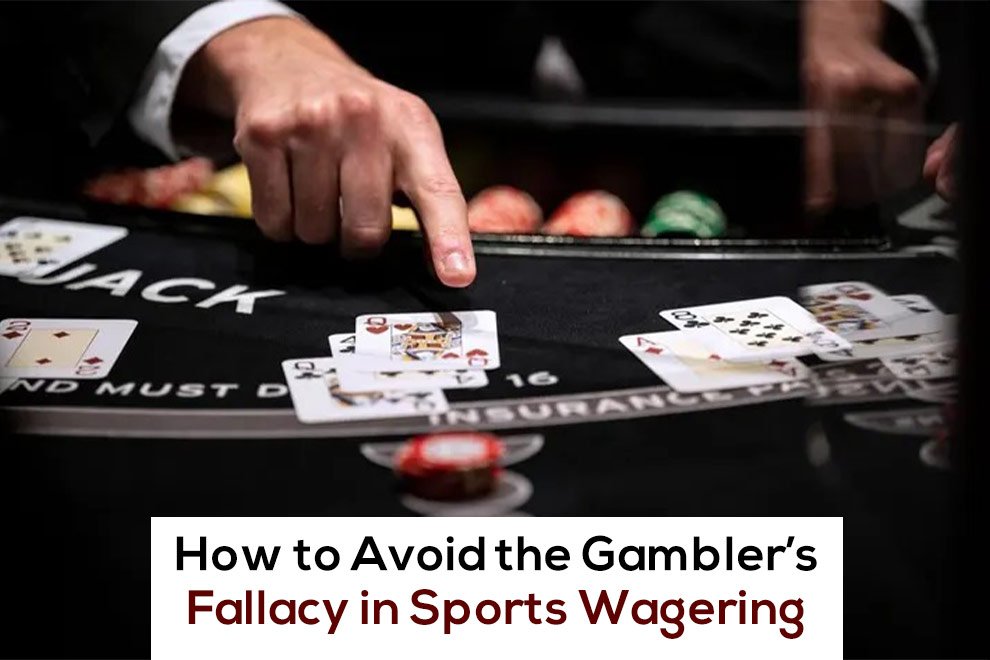Sports betting can be exciting and rewarding, especially when you make informed decisions. But it also comes with psychological traps that can lead to poor choices and losses. One of the most common mistakes is falling for the Gambler’s Fallacy.
This false belief affects both new and experienced bettors. Understanding what it is and how to avoid it can protect your bankroll and help you make smarter bets.
What Is the Gambler’s Fallacy?
The Gambler’s Fallacy is the mistaken belief that past events affect the outcome of future events in a game of chance. In simple terms, it’s the idea that if something hasn’t happened in a while, it’s “due” to happen soon.
A Classic Example
Let’s say you’re flipping a coin, and it lands on heads five times in a row. You might think tails is more likely to come up next. But the odds remain 50/50 for each flip. The coin has no memory, and each flip is independent.
This same logic applies to sports betting—although it often hides behind stats, streaks, and emotions.
How the Gambler’s Fallacy Shows Up in Sports Betting
Misreading Winning or Losing Streaks
Bettors often believe that a team on a losing streak is “due” for a win. Or that a team winning several games in a row must be “due” for a loss. These assumptions can be dangerous.
Sports results depend on many real-world factors—injuries, matchups, weather, team morale—not on previous results alone.
Overreacting to Past Bets
Another sign of the fallacy is when a bettor thinks, “I’ve lost five bets in a row, so I must win the next one.” This mindset can lead to chasing losses with larger bets, increasing the risk of bigger financial hits.
Why This Fallacy Is Dangerous in Sports Wagering
It Distorts Logical Thinking
The Gambler’s Fallacy causes you to ignore real data and rely on flawed patterns. It tricks your brain into thinking there’s a system or balance in place when there isn’t.
It Encourages Risky Behavior
Believing you’re “due” for a win can make you raise your stakes or bet on underdogs without reason. This leads to impulsive gambling rather than strategic betting.
It Delays Recovery from Losses
Instead of reviewing and improving your betting strategy, the fallacy convinces you that luck will eventually turn in your favor. This slows down your learning and encourages continued mistakes, especially in online sports betting where decisions often need to be quick and calculated.
How to Avoid the Gambler’s Fallacy
Avoiding this mindset isn’t always easy. Our brains are wired to look for patterns. But there are steps you can take to stay grounded and focused on real information.
1. Understand Probability: Each sports event is unique. Just because something happened before doesn’t mean it will—or won’t—happen again.
For example, if a basketball team has lost five home games in a row, it doesn’t mean they are suddenly more likely to win the next one unless the circumstances have changed (like lineup updates or opponent quality).
Focus on the real odds and team performance, not gut feelings based on past streaks.
2. Base Your Bets on Research: Instead of betting based on a losing or winning streak, study the teams or players involved. Look at:
- Recent form and injuries
- Head-to-head matchups
- Playing styles
- Home or away stats
- Motivation (playoff implications, rivalries, etc.)
This data gives you a clearer picture of how a game might unfold.
3. Set a Strict Bankroll Strategy: The Gambler’s Fallacy often leads to chasing losses. To avoid this, set clear bankroll rules.
- Decide how much you’re willing to bet per game (a small percentage of your total bankroll).
- Never increase your bet just because you’ve lost a few in a row.
- Stick to flat betting or a consistent stake to limit risk.
A strong bankroll plan keeps emotions out of your decisions.
4. Take Breaks After Losing Streaks: Losing can trigger frustration and cloud your judgment. If you notice you’re falling into “I’m due for a win” thinking, step away. Take a break, clear your mind, and return when you’re thinking logically again.
Breaks also help you avoid tilting—making poor decisions due to emotional reactions to loss.
5. Track Your Bets and Performance: Keeping a betting journal helps you identify patterns in your thinking. You might notice that your losing bets were often based on emotional assumptions rather than stats.
Logging each bet with a brief note on why you made it can help you stay accountable and improve over time.
Final Thoughts
The Gambler’s Fallacy is a common mental trap in sports wagering. It convinces bettors to make choices based on faulty logic, like assuming a team is “due” for a win or that a loss streak guarantees a turnaround.
To avoid this, stay focused on facts, use a strong bankroll strategy, and never bet based on emotion or superstition. Smart betting is about analyzing real information, not trusting false patterns.
By recognizing and avoiding the Gambler’s Fallacy, you’ll give yourself a better chance to succeed—and enjoy the process more along the way.
Also Read: Fresh Ideas: What Gambling Needs in 2025










